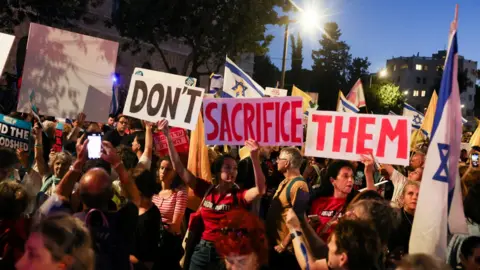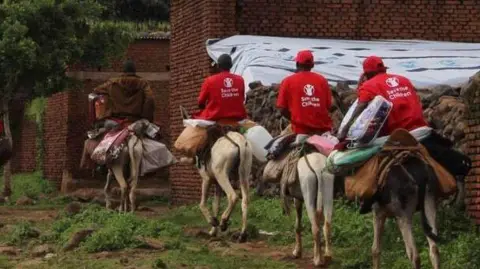In Mexico City, escalating tensions surrounding gentrification have prompted locals to express their anger towards foreign remote workers. During a protest described by some participants as a response to rising living costs, demonstrators exhibited handwritten signs declaring their dissatisfaction with phrases such as “Gringo, go home!” and “Gentrification is colonization!” The incident took place on Friday and targeted popular areas frequented by foreign workers, which drew a public condemnation from President Claudia Sheinbaum.
While acknowledging the protesters' grievances, Sheinbaum emphasized the need for balance given the influx of affluent foreigners, particularly from the U.S. Many long-term residents feel the pinch of increasing rents and escalating food prices due to the recent migration of well-off individuals seeking a new lifestyle in Mexico City’s vibrant neighborhoods, particularly during and after the pandemic.
Daniela Grave, a protester and local resident, articulated her concerns: “If they make a living in dollars, and don’t pay taxes here, we are just in unequal circumstances.” She emphasized how remote workers, with their dollar-based salaries, hold a significant financial advantage over locals.
The neighborhoods of Condesa and Roma, once primarily Spanish-speaking enclaves, have seen a shift toward English dominance in storefronts, cafes, and communal spaces. This shift has instigated a cultural transformation, with new establishments geared towards wealthier newcomers, leaving longtime residents feeling marginalized in their own communities.
The protests represent a tipping point for many locals who feel their way of life is being compromised. As Mexico City continues to attract remote workers from abroad, the challenge lies in finding a balance that respects both long-term residents and new arrivals, ensuring that the city’s rich cultural heritage is preserved amidst ongoing change.





















